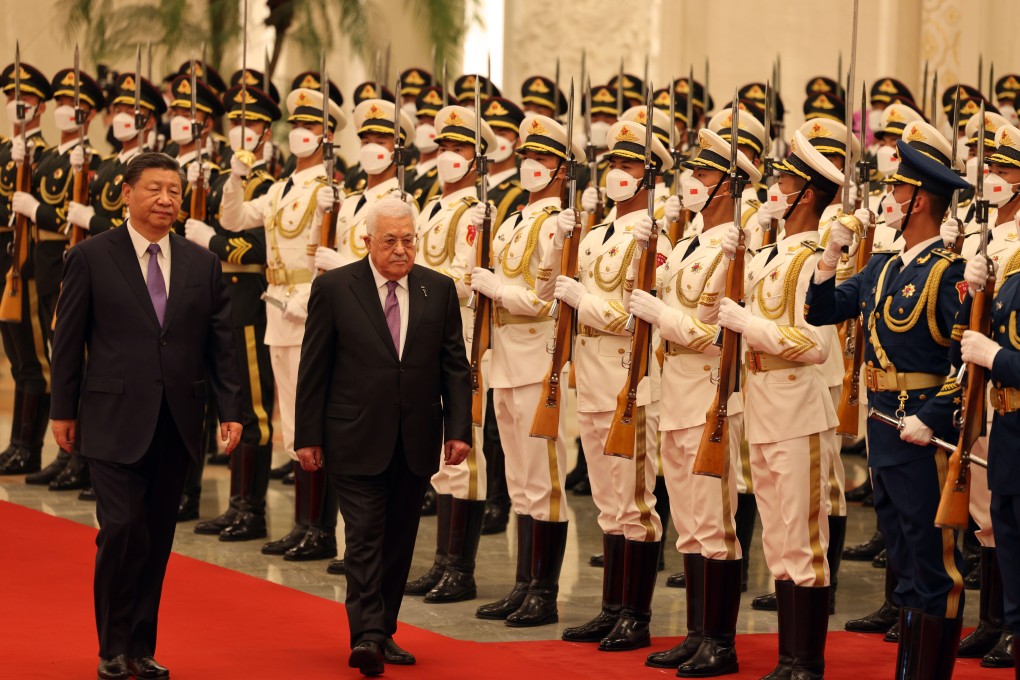My Take | Abbas’ visit is the latest sign the Middle East is tilting towards China
- Given the complete mess Washington has made in the region over decades, maybe even Israel will find value in greater Chinese engagement

Mahmoud Abbas’ visit to China reflects the ironies of contemporary international politics.
On an official visit last week, the Palestinian president called on Beijing to apply pressure on Israel to resolve the Israeli-Palestinian conflict. Everyone who knows anything about the conflict knows that will make zero difference because Israel is the ultimate “decider” by its sheer military dominance on the ground and complete ideological takeover of Washington.
But what Abbas is really doing is telling Washington to stuff it and that the Palestinians can’t do any worse by appealing to Beijing.
Both the visit and the call expose the many double standards and hypocrisies today.
Abbas’ call ultimately makes as much or as little sense as the West’s insistence that Beijing must denounce Russia’s invasion of Ukraine and pressure Moscow to retreat to its pre-2014 borders.
Call that the reverse Abbas. It’s in the West’s geopolitical interest to prevent China exerting increasing influence in the Middle East; and so no one in the West would demand greater Chinese involvement on the Palestine question. This is despite the fact that Beijing actually enjoys good relations with both Israel and the Palestinian Authority.
